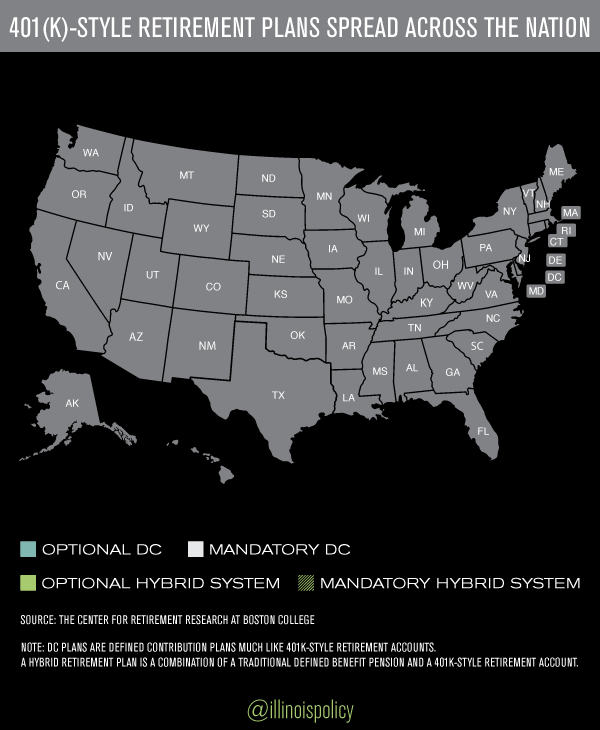End legislative pensions in Illinois
Illinois’ lawmakers often blame unions for the Illinois General Assembly’s inability to pass real pension reform. “The unions will never allow it” is the common chorus when it comes to proposing bold reforms like those recently passed in Oklahoma, which put nearly all new state workers on 401(k)-style plans, or those passed in many other...
Illinois’ lawmakers often blame unions for the Illinois General Assembly’s inability to pass real pension reform.
“The unions will never allow it” is the common chorus when it comes to proposing bold reforms like those recently passed in Oklahoma, which put nearly all new state workers on 401(k)-style plans, or those passed in many other states across the country.
But legislators can’t use that excuse when it comes to reforming their own pension fund, the General Assembly Retirement System, or GARS. There are no unions to stand in their way.
Instead, Illinois legislators have two good reasons to take the lead on real pension reform.
First, their pensions are the worst funded in the state. If there is a pension system that’s already bankrupt and in dire need of reform, it’s theirs.
GARS, which provides pensions to 294 retired legislators, is nearly out of cash. The pension fund has just 17 cents in assets for every dollar it needs to meet its future obligations; enough to cover the next 2.5 years of pension payments to retired legislators. To keep the pension fund solvent, the state – meaning taxpayers – will contribute more than eight times more into GARS in 2014 than legislators will.
GARS is broke and taxpayers are being forced to bail it out.
Second, Illinois legislators were never meant to be career workers like teachers, police officers or firemen. In Illinois, being a politician is legally a part-time job – so reforming GARS shouldn’t be controversial. In fact, nearly two dozen legislators have already opted out of receiving legislative pensions.
But there’s a reason why some politicians may want to hang on to their pension plans. Many have become career politicians, in part because of the full-time benefits they receive.
The average pay for an Illinois legislator is $81,000, according to the Commission on Government Forecasting and Accountability. And their base-level salary is fifth highest in the nation. Lawmakers also receive pensions equal to 85 percent of their final salary after just 20 years of service.
These overly generous benefits for part-time work puts legislators in direct conflict with the need to reform their own retirement plans.
There’s one more good reason to end pensions for legislators, and that’s to chip away at corruption. Jim Nowlan, a former Illinois legislator, suggests that moving elected officials to 401(k)-style plans will remove “opportunities for mischief.”
He’s right. With the countless stories of sweeteners and opportunities to game the system – like one-day re-hirings and double- and triple-dipping – legislative pensions must go.
It’s time to end the pension games in Illinois. Legislators can start by ending their own.
